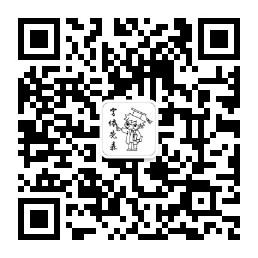| Copyright notice: |
Copyright © 2021 Monotype GmbH. All rights reserved. |
| Font family: |
DIN Stencil Thin |
| Font Subfamily name: |
Regular |
| Unique font identifier: |
Monotype GmbH:DIN Stencil Thin:2021:S3:3.0.4 b3094 |
| Full font name: |
DIN Stencil Thin |
| Version string: |
Version 1.00 |
| Postscript name: |
DINStencil-Thin |
| Trademark: |
FF is a trademark of Monotype GmbH registered in the U.S. Patent and Trademark Office and may be registered in certain other jurisdictions. DIN is a trademark of Monotype GmbH registered in the U.S. Patent and Trademark Office and may be registered in certain other jurisdictions. |
| Manufacturer Name: |
Monotype GmbH |
| Designer: |
Albert-Jan Pool, Achaz Reuss |
| Description: |
Typeface Family Name: FF DIN Stencil.
Library: FontFont Library.
Typeface Designer: Albert-Jan Pool, Achaz Reuss.
Typeface Design Year: 2021.
Type Style Category: Sans Serif, Grotesque
Number of Weights: 14
FF DIN is the perfect standard typeface. It originates in the lettering models of the German standard DIN 1451. Being developed with ruler and compass, it has the character of a constructed, non-written typeface. Unlike many other geometric typefaces such as Futura and ITC Avant Garde Gothic, circles do not dominate the letterforms. This is what gives DIN a neutral and uncomplicated look-and-feel. These are the characteristics which grant its success.
Through the years the letterforms presented in DIN 1451 had been adapted for various lettering techniques such as stamping, punching, engraving and stenciling. In the course of looking for new styles to further extend the family of FF DIN, Albert-Jan Pool and Achaz Reuss, co-designer of the first five weights of FF DIN, explored these adaptations. They took a closer look at how the technical limitations inherent to these techniques had influenced the letterforms. It appeared obvious to them that the prominent bridges preventing the islands (lettering-speak for counters) from dropping out its stencil could be used as a design feature rather than accepting them as necessary evil. The idea to design a stencil-version of FF DIN seemed both logical and appropriate.
Pool and Reuss decided that FF DIN Stencil should follow the same design principles as FF DIN. The bridges are basically arranged vertically, they usually replace the thinnest part of the strokes. The factual functionality of the bridges predominates their role as decorative elements. Within each weight the widths of the bridges are identical. As the weights get heavier, the width of the bridges expands accordingly. As from the Medium weight, the width of the bridges is reduced in order to preserve the recognizability of the counters. Spacing and kerning is identical with FF DIN, this enables swapping to FF DIN Stencil and vice versa without changes in word length and line breaks.
FF DIN Stencil comes along with workmen’s objectiveness and underlines the qualities of FF DIN as a practical jobbing typeface. |
| URL Vendor: |
http://www.monotype.com |
| URL Designer: |
http://www.monotype.com |
| License Description: |
This font software is the property of Monotype GmbH, or one of its affiliated entities (collectively, Monotype) and its use by you is covered under the terms of a license agreement. You have obtained this font software either directly from Monotype or together with software distributed by one of the licensees of Monotype. This software is a valuable asset of Monotype. Unless you have entered into a specific license agreement granting you additional rights, your use of this software is limited by the terms of the actual license agreement you have entered into with Monotype. You may not copy or distribute this software. If you have any questions concerning your rights you should review the license agreement you received with the software. You can learn more about Monotype by clicking here: www.monotype.com. |
| License Info URL: |
http://www.monotype.com |
| Typographic Family name: |
DIN Stencil |
| Typographic Subfamily name: |
Thin |
| Sample text: |
The quick brown fox jumps over the lazy dog |



